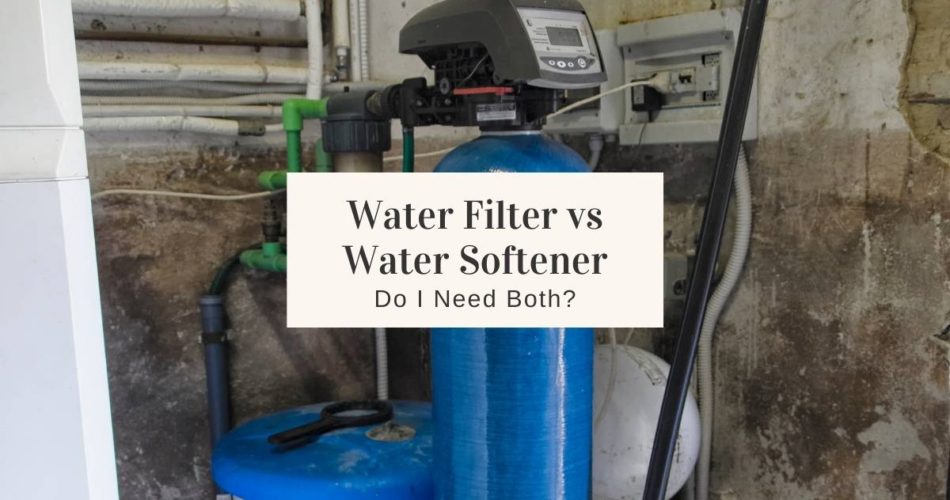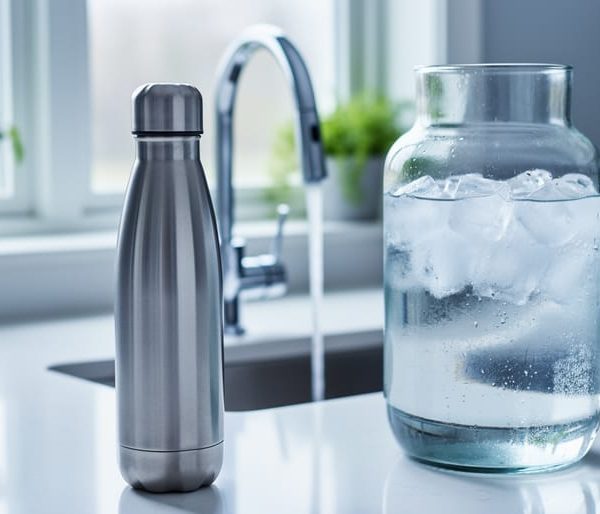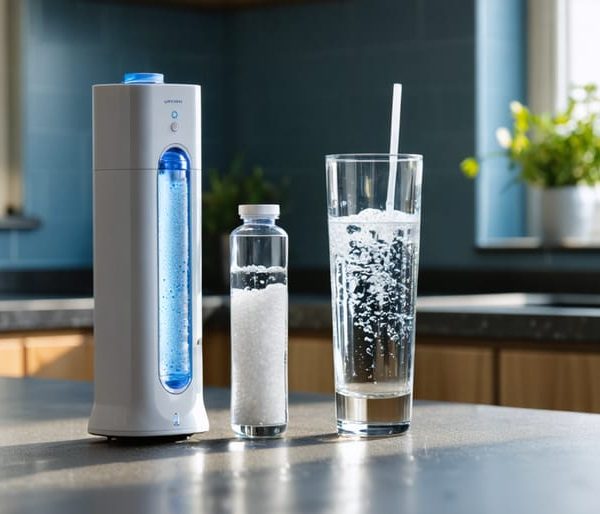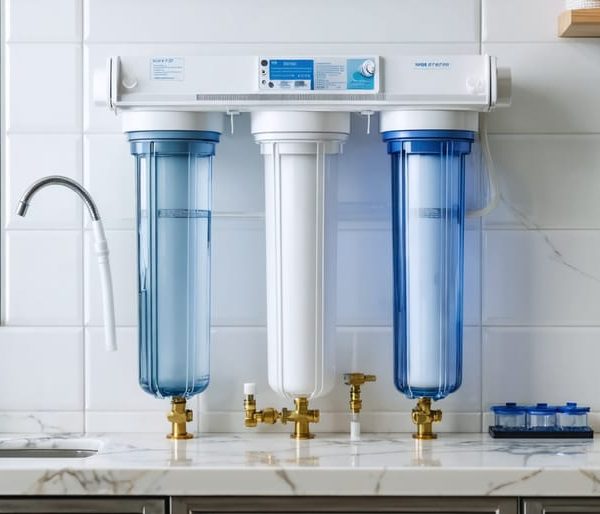Whether you need both systems or just one depends on the kind of water you have in your home. Unfortunately, there have been many misconceptions about water softeners vs water filters. You will know the similarities and differences between water filters and water softeners as you read on. We will also help you decide which one will be best for you.
Softener vs Water Filter Comparison
A water softener and a whole house water filter are water filtration systems but with different functions. This means they both filter water, but for various reasons. Whether you need one or the other depends on the water quality in your home or city.
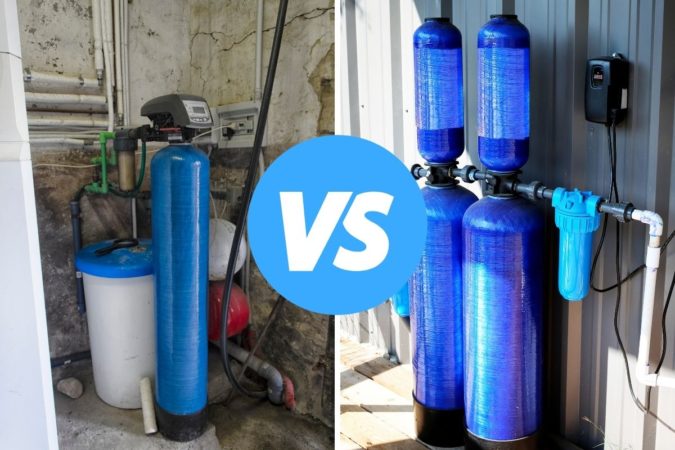
Water Filters
A whole house water filter eliminates various contaminants or impurities from your house’s water supply. For example, water from municipal utility companies usually contains impurities such as chromium-6, chlorine, heavy metals, selenium, firefighting foam, pesticides, sediments, boron, lithium, etc.
A whole house water filter serves as the final point of entry for your home’s drinking water supply, and this is why they are very relevant.
A drinking water filter such as a reverse osmosis system tackles contaminants such as total dissolved solids. Other water filters such as countertop and under-sink water filters can eliminate a range of specific contaminants from your water supply.
Many water filters utilize multiple filtration stages to remove contaminants affecting water quality and taste. The result of these water filters is cleaner and great-tasting water. Your water is also safer for your water-using appliances because its acidity is neutralized, reducing corrosion in your pipes and appliances.
Let’s understand how a water filter works. Firstly, the water coming into your home goes through a sediment pre-filter, eliminating larger contaminants such as dust, silt, and dirt. Then it goes through the filter media, which tackles chemical contaminants such as copper, herbicides, and pesticides.
After this stage, water goes through the final stage (the post-filter) to weed out the remnant sediments and contaminants.
Water Softeners
Water softeners are as relevant as water filters because they protect and ensure easy maintenance of your plumbing fixtures and household appliances. They do this by preventing or reducing hard water scale build-up.
As the name implies, a water softener has a primary function: to eliminate hard water minerals such as calcium and magnesium from your water supply. Hard water is prevalent in cities such as Arizona and Phoenix.
Technically, water softeners are under the category of water filters because they perform some water filtration. Still, their functions are distinct enough from conventional water filters to be categorized separately.
As mentioned earlier, water softeners utilize the ion exchange process to swap hard water mineral deposits (calcium and magnesium minerals) for sodium ions.
Ion swapping is the only true softening process. Besides ion exchange, any other process is merely neutralizing or conditioning your water, not producing soft water from hard water.
For instance, swapping salt in the brine tank of water softeners for potassium ions will trigger the crystallization of hard water mineral ions. However, they are still present in your tap water. A salt-free water conditioner like the FutureSoft of NaturSoft executes this.
Water conditioners don’t use salt to soften hard water. Instead, they utilize scale control media technology to lower the build-up of scales in the home without the involvement of salt ions or chemicals.
Do I Need Both?
Can I get a water filter and forego a water softener or vice versa? Must I have both? To answer this, we have to consider their filtration objectives and the type of incoming water to your home.
We can also consider a whole house filtration system that can function as a water softener and perform the functions of a traditional water filter.
For effective filtration and elimination of the widest range of contaminants in your water, it will be ideal to go for both a water softener and a whole house filter combo. However, if there are no hard water issues in your city, getting a water filter is fine.
Furthermore, you can’t get a water softener without getting a water filter because water hardness ions are not the only contaminants tainting your water quality.
Imagine having just a water softener in your home when your locality is prevalent with viral and bacterial water contamination. Unfortunately, it’s just as useless. This is because water softeners and water conditioners won’t be as effective in removing these impurities.
To get thoroughly filtered water, go for whole water filtration systems with the smallest sizes of filter pores. This kind of filter can even trap hard water minerals from entering your home’s plumbing system.
Which Water Filtration Systems Is Better?
A good water filter may not soften your drinking water, but it will surely rid it of toxic impurities such as VOCs, herbicides, chlorine, chloramine, etc. Unlike well water, city water plants commonly use chlorine to purify water. According to a 1970s study, water containing excessive chlorine triggers the formation of a by-product known as Trihalomethanes. This by-product forms when chlorine combines with an organic matter, e.g., algae.
These are important reasons why getting a water filter for your home is a good decision. Since water filtration systems remove chlorine, among many other contaminants, they protect your family’s health.
On the other hand, a salt-based water softener is only necessary if you’ve been experiencing the unpleasant effects of water hardness.
There’s no need to get water softening equipment if there’s no issue of water hardness in your city or locality. So while one water system is relevant in all scenarios, the other is only relevant in a scenario involving water hardness.
FAQs
Can a water softener remove harmful contaminants?
By default, an average water softener is designed to remove minerals through resin beads and ion swapping. However, certain water softeners have gone the extra mile. They can remove ammonia, chlorine, etc. Unfortunately, most water softeners are not effective in removing other impurities.
Can a water filter tackle hard water?
It’s a fact that a whole house filter can remove a wide range of harmful contaminants from your water supply, but does that include water hardness minerals. Considering that a whole house filter wasn’t designed to soften hard water, the answer to this is no.
You can only achieve the removal of hard water minerals through a process referred to as ion swapping, and this is unique to water softening systems.
Can a water softener eliminate chlorine from water?
Only water softening equipment designed with activated carbon media is capable of removing chlorine from water.
Is a water filtration system better than a water softener?
There’s no better system. A water softener is explicitly designed to soften water, while a water filter is designed to remove a wide range of impurities from water. If you stay in a city where water hardness is prevalent, you’ll need both systems. However, if there’s no water hardness issue, you’ll need just a water filter for superb water quality.
